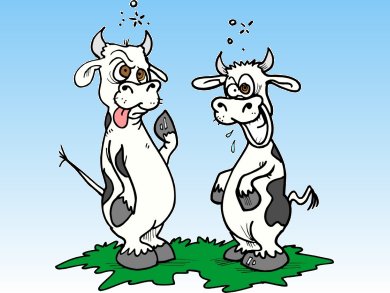Is there a therapeutic agent capable of treating prion-induced illnesses like mad cow disease or Creutzfeldt-Jakob disease? Researchers at University of Sheffield, UK, have found a few promising candidates. In particular, one member of the indole-3-glyoxylamide family stopped prion propagation in cells infected with Scrapie, the prion-caused disease in sheep. “It was pleasing to find that a single dose of [the] compound seemed to cure the infected cells indefinitely,” Mark J. Thompson and his co-authors write.
How the substance takes effect, the researchers don’t know, although they have shown that the active indole compounds do not bind to prion proteins: This has been the generally accepted mode of action. None of the indole compounds that Thompson and his co-workers tested were found to kill the cells themselves.
“Prion” stands for proteinaceous infectious particle and is a protein in a mis-folded form. These infectious agents propagate by transmitting their abnormal state to other proteins and thus cause several diseases in humans and animals. Up to now, all prion diseases have been untreatable and fatal.
- Structure–Activity Relationship Refinement and Further Assessment of Indole-3-glyoxylamides as a Lead Series against Prion Disease
M. J. Thompson, J. C. Louth, S. Ferrara, F. J. Sorrell, B. J. Irving, E. J. Cochrane, A. J. H. M. Meijer, B. Chen,
ChemMedChem 2010.
DOI: 10.1002/cmdc.201000383




